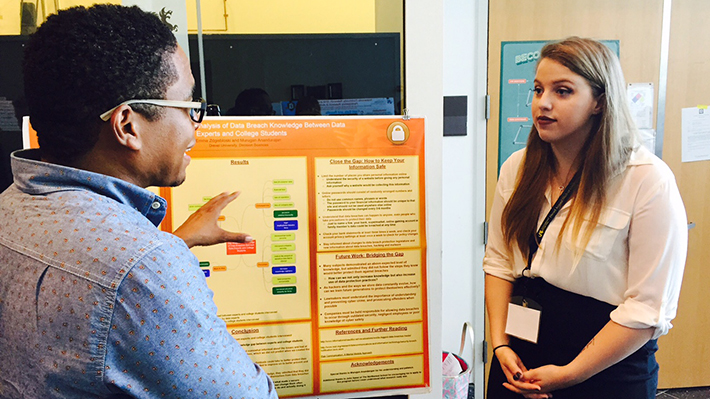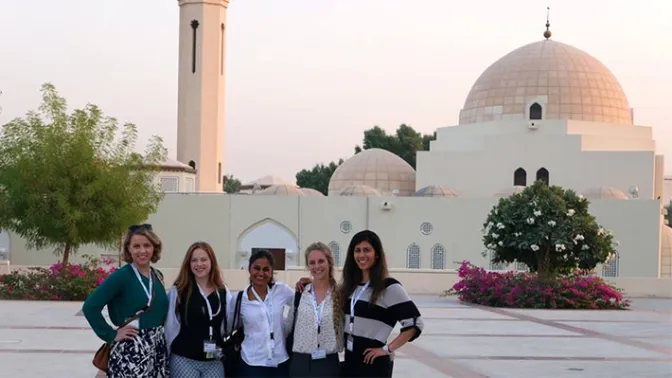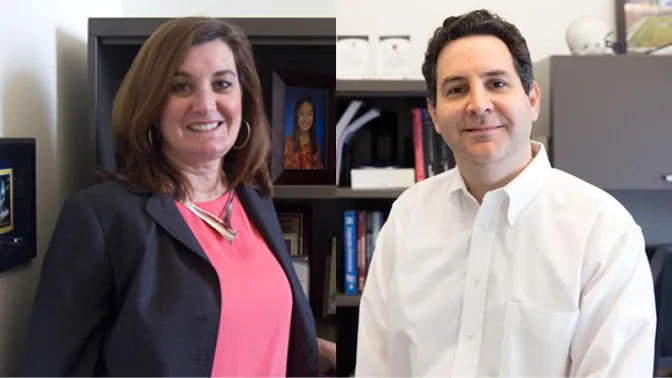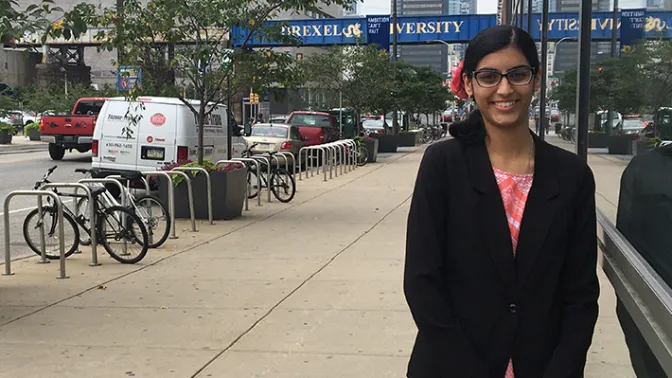
STAR Scholars: Exploring Student Data Protection
Online data breaches and identity theft are becoming commonplace with so many important transactions taking place solely online nowadays.
“Your computer is more likely to get broken into than your home now,” says first-year marketing major Emma Zdgiebloski. “You’d be safer writing passwords and account numbers on a notepad and storing them in your desk rather than online.”
With so much time spent online, do college students know how to protect their data and identity from potential theft? That was the focus of her research presented at the annual Students Tackling Advanced Research (STAR) Scholars Summer Showcase.
Zdgiebloski worked with faculty mentor Murugan Anandarajan, PhD, on her presentation, titled “Mind the Gap: Risk Communication on Data Breaches Among College Students,” to determine what college students know about protecting their online data and identities and how that compares to what experts in the field have identified as best practices.
Zdgiebloski took a qualitative approach to her research, combining a large-scale literature review with interviews of both Drexel and non-Drexel students in person and via Skype. She reviewed the interviews and identified common responses related to who is at risk as well as causes and consequences of data breaches and opportunities for prevention.
Her results were not quite what she expected.
“I thought college students wouldn’t know as much about data breaches, but they actually knew a lot,” she said. In most of the areas reviewed, she identified consistent overlap between the students’ responses and those provided by field experts.
But it was the answers to her follow-up question about data breach prevention that proved most interesting to Zdgiebloski. When she asked students which of the prevention methods they utilize from the list they provided, she found that most implemented few or none for their own protection.
“It wasn’t a lack of knowledge,” she said. “[The students] knew what to do. They just weren’t doing it.”
Zdgiebloski, who is also a LeBow Undergraduate Research Fellow, plans to continue her research and look deeper into why people who possess the knowledge of how to protect themselves from identity theft and data breaches intentionally choose not to implement them.
Zdgiebloski is actively involved on campus as a member of Delta Zeta Sorority and the Honors Learning Community and now sees research as an important part of her education at Drexel thanks to the STAR program.
“Before I participated in STAR, I would probably say that participating in research as an undergrad wasn’t terribly important. Sure, it would look nice on a resume, but it wasn’t necessary,” she says. “After completing STAR, I have changed my mind 100 percent. If a student intends to present anything in a boardroom setting one day, programs like STAR are vital in so many ways.
“I was held to high expectations that I sometimes believed I would never be able to meet, and I often had to find creative ways to get by. You must think for yourself and look at your own work critically. I also had to learn to present my work in a comprehensive and visually appealing way, a skill that I am sure will serve me well. The confidence and independence that doing research for Drexel fostered will be something that I carry with me long after graduation.”
The STAR Scholars Program allows first-year students to participate in research with faculty during the summer after their first year when they would normally be on break. STAR Scholars work full-time while living on campus and earning a stipend. The engagement of faculty in students’ research is a hallmark of the program and something Zdgiebloski made the most of.
“Dr. Anandarajan was patient and understanding, but he held me to a very high standard. His expectations were always clear,” she says. “I was given ample room to make mistakes in my research, as long as I could identify and correct them. He was present and engaged willing to support my research in every way.”
Her faculty mentor serves as the department head for LeBow’s decision sciences and management information systems departments. Anandarajan was selected as the STAR Mentor of the Year in 2014 for his support of student research. This award included a $1,000 grant to support his work, which he used to purchase research materials and support student attendance at conferences.


